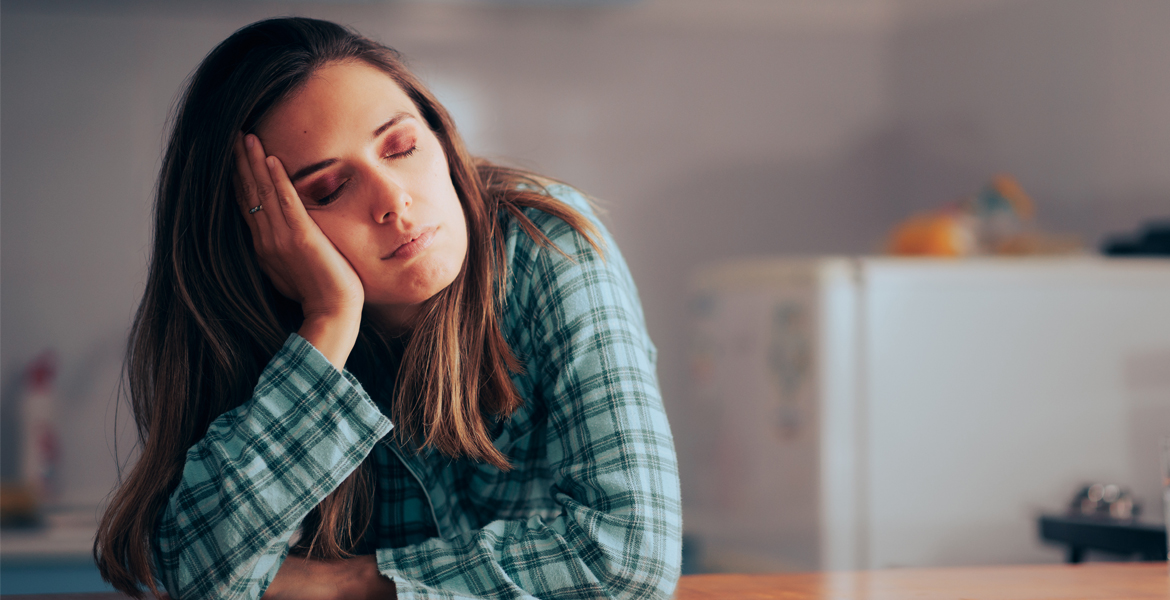Can an Urgent Care Clinic Treat Sleep Deprivation and Insomnia?
March 17, 2023

It’s recommended that adults get between seven and 8 hours of sleep a day. But sometimes this seems impossible — busy schedules, endless distractions and a million things to track in everyday life can make it hard to get the shut-eye you need. It’s no wonder that more than 35% of American adults suffer from sleep deprivation and 10% have true insomnia disorder.
Poor sleep can have severe effects on a person’s health and well-being. Up to 40% of adults report accidentally falling asleep during the day at least once in the last month, and nearly 20% of car accidents and injuries are associated with sleepiness. Chronic insomnia and sleep deprivation also increase your risk of depression, stroke and other serious conditions.
If you are one of the many individuals suffering from a lack of sleep, here is some information on changes you can make to reduce insomnia and sleep deprivation, and when it’s time to consider urgent care for treatment.
What Insomnia and Sleep Deprivation Look Like
Insomnia and sleep deprivation are related, but not the same. Insomnia is a common sleep disorder that makes it hard to fall, stay or get back to sleep if you wake up prematurely. Insomnia happens even though you try to sleep.
Most people only experience short-term (acute) insomnia. Symptoms include not feeling well-rested after a night of sleep, daytime tiredness, irritability, and difficulty paying attention and remembering. Usually, once you get a good night’s sleep, you feel better again and can function normally. However, some people may experience long-term (chronic) insomnia, lasting a month or more. Chronic (or intense acute) insomnia can lead to more disruptive health issues including a weakened immune system, inflammation, mental health issues, high blood pressure and sleep deprivation.
Contrary to how it’s treated in the media, sleep deprivation is not a normal part of everyday life. Sleep deprivation can occur when you don’t get enough sleep due to circumstance such as:
- Insomnia.
- Night shift work.
- Alcohol misuse.
- Too much caffeine throughout the day.
- Poor sleep habits (sleep hygiene).
- High stress or trauma.
- Sleep apnea.
- Pain.
- Flu and other short-term illnesses.
The initial symptoms of sleep deprivation mirror those of insomnia: fatigue, slowed reaction times, inattentiveness, irritability and brain fog. The CDC likens this state to having a blood alcohol level of 0.10 percent (you are considered legally impaired at 0.08%). At Texas MedClinic Urgent Care clinics, we recommend staying off the road until you can take a nap or get a full night’s sleep.
Unfortunately, the longer you experience sleep deprivation, the more intense and disruptive your symptoms become. You may experience “microsleeps,” when you briefly fall asleep without knowing it; hand tremors; trouble speaking clearly; and impaired judgment. In severe instances (after about 72 hours with no sleep) it can even lead to sleep deprivation psychosis characterized by anxiety or depression, delusions, inability to perceive reality and significant hallucinations.
Regardless of how severe your symptoms or how long you’ve been experiencing them, you should seek help at an urgent care clinic if insomnia or sleep deprivation are negatively impacting your quality of life. But there are also things you can do at home that may help you get better sleep.
Help for Sleep Problems
If sleep problems already have you at your wits’ end, a Texas MedClinic Urgent Care clinic near you can help. We’ll begin by talking with you about your health history and symptoms, then ask you questions about your sleep environment, mental health, and stress levels. We will discuss good sleep hygiene to help you treat and prevent further sleep deprivation. We may also suggest a medication such as an antihistamine or melatonin to help you get some much-needed sleep in the short-term.
Some of the things our urgent care center recommends you do to improve sleep long-term include:
- Follow a sleep schedule. Going to sleep at the same time for about the same time helps train your body to sleep when it’s supposed to.
- Give yourself time. Build a buffer between the end of your daily activities and when you go to sleep for “calm-down time.” You may wish to add something relaxing like a bath, a cup of chamomile tea or a meditation practice to prepare your mind and body for sleep.
- Mind what you put in your body. Eat healthy foods and avoid taking in too much caffeine, alcohol or nicotine. Don’t drink or eat too late in the day.
- Exercise. Research shows that exercise decreases sleep problems and can be as effective as sleep medications. You may have to experiment with timing, but it’s generally best to end your workout at least 90 minutes before your bedtime.
- Optimize your bedroom for sleep. Limit distractions by keeping a tidy bedroom, putting pets out, avoiding activities like reading or watching TV and darken your room so your brain recognizes it’s time to sleep. Change your sheets regularly, keep your room at a good temperature and make sure your mattress and pillow are supporting you correctly to make your body as physically comfortable as possible.
- Put your phone in time-out. We know it’s tough to separate from your phone but remove electronic devices from your room. The light they put out stimulates your brain and it’s too easy to pick up your phone just to realize you’ve been scrolling away for more than an hour of your sleep time.
At Texas MedClinic Urgent Care clinics, our health care providers are ready and available to help you make sleep hygiene changes that will improve your life. We provide you with the treatment and attention you deserve and will make personalized recommendations to help you get a good night’s sleep again. We have urgent care locations throughout Austin, Texas ready to assist you. Visit our website for more information or to save your spot online!




